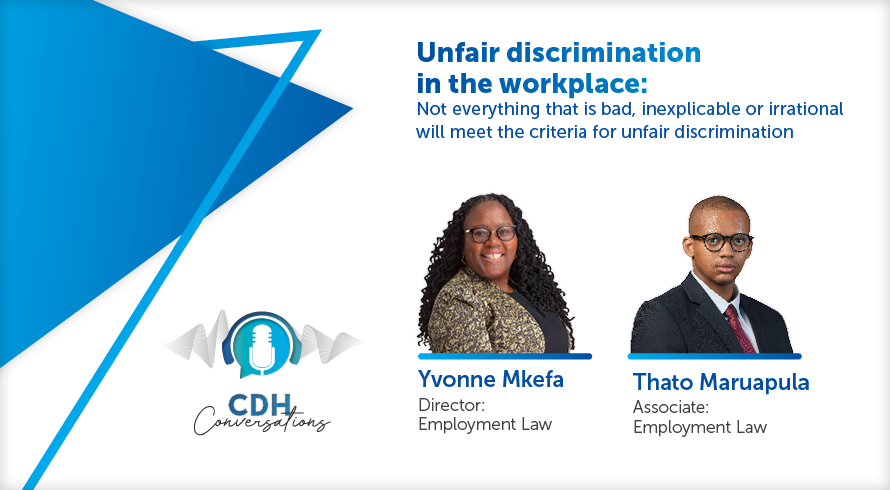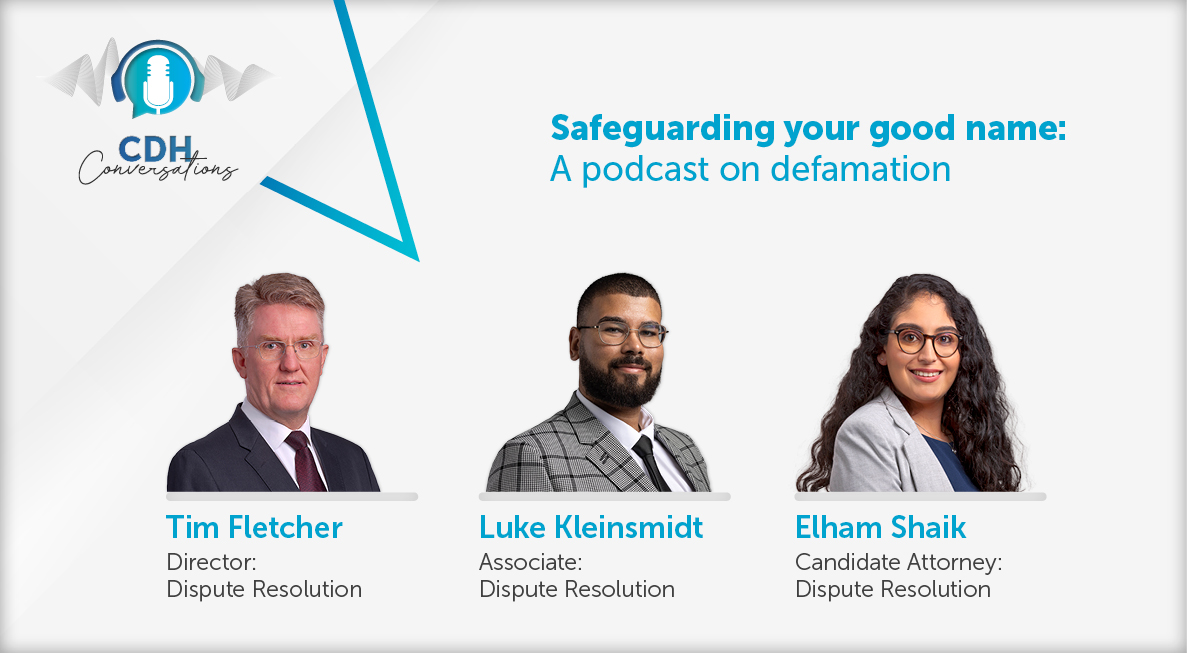To be…or not to be (a legal practitioner)
In terms of s115 of the LPA, “Any person who, immediately before the date referred to in s120(4) [being 1 November 2018], was entitled to be admitted and enrolled as an advocate, attorney, conveyancer or notary is, after that date, entitled to be admitted and enrolled as such in terms of this Act.” This raises the unanswered question of who was entitled to be admitted immediately before 1 November 2018, given that the Attorneys Act, No 53 of 1979 (Attorneys Act) and the Admission of Advocates Act 74 of 1964 (Advocates Act) have been repealed.
In its interim final order, the full bench of the High Court of South Africa, Gauteng Local Division, Johannesburg in the case of Ex parte R. Goosen and others, case number: 2137/2018, held that any person who applied for admission to practice as an advocate or as an attorney whose application was pending on 1 November 2018 is entitled to invoke the provisions of s115 of the LPA, in order to rely on the provisions of the Advocates Act or the provisions of the Attorneys Act, to be admitted to practice as a legal practitioner, in terms of s24 of the LPA. The balance of this order has not been delivered.
This however does not address the case of candidates who, as at 1 November 2018 were in partial fulfilment of the admission requirements in terms of the Attorneys Act. This is especially true for candidates, whose contracts of articles of clerkship were registered prior to the coming into effect of the LPA. Such contracts state that candidate attorneys shall satisfy all the requirements of s15 of the Attorneys Act, by the completion of their period of articles thereby entitling the candidate attorneys to complete their articles of clerkship within a period of two years in order to qualify for admission as attorneys.
A sensible and logical approach was taken by the Honourable Roberson J in the case of Ex parte Drian Hendrik Bakkes and Five Similar Cases (3211/18) [2019] ZAECGHC 3 (18 January 2019) (Bakkes case), where she held that candidates who obtained their LLB degrees prior to 1 November 2018 may use the LPA as a vehicle for the admission of such persons. She further held that to require such a person to satisfy the requirements of the LPA in addition to the Advocates Act or in this case, the Attorneys Act would unfairly require such persons to be dually qualified. Therefore, persons who obtained their LLB degree prior to 1 November 2018 are entitled to be admitted. Section 115 must be used as a vehicle for the admission of those persons who were in partial fulfilment of the requirements of the repealed Attorneys Act.
This judgment is in line with the established principle that there is a presumption against a change in the law operating retrospectively so as to create a new obligation or impose a new duty or attach a new disability in regard to events already past. This principle was canvassed in the Constitutional Court case of Donald Veldman v The Director of Public Prosecutions 2007 (9) BCLR 929 (CC) where Donald Veldman (Donald) was challenging the constitutionality of the imposition of a fifteen-year sentence on a charge of inter alia murder, by the regional magistrate’s court. In this case, when Donald entered his plea, the maximum penal jurisdiction of the regional court for murder was ten years imprisonment. After the plea, and before sentencing, legislation was passed wherein the regional magistrate’s court’s maximum penal jurisdiction for murder was increased to fifteen years and Donald was therefore sentenced to fifteen years imprisonment. The Constitutional Court held that the retrospective application of the amendment adversely affected Donald’s rights because he had a legal interest in the certainty that his sentence would not exceed the maximum penal jurisdiction of the trial court in terms of the applicable law at the time of the plea.
Section 26(1)(c) of the LPA imposes additional requirements for the admission of attorneys which were not required under s15 of the Attorneys Act. At the time of entering into their contracts of articles, prior to 1 November 2018, candidates were not only obliged to satisfy all the requirements in terms of s15 of the Attorneys Act but were also entitled to certainty as to the requirements for admission as at the time of the entering into and termination of the contracts. Imposing the requirements contained in the LPA, as stated in the Bakkes case, would unfairly require such persons to be dually qualified. This would amount to retrospectively creating new obligations on legal practitioners who obtained their LLB degrees prior to 1 November 2018 and were therefore entitled to be admitted as legal practitioners.
Imposing the requirements contained in s26 of the LPA would also create a rather bizarre situation in the case of ‘candidate attorneys’ whose contracts of articles have in fact lapsed and their applications, brought after 1 November 2018 are pending. These candidates would then have new obligations to fulfil as candidate attorneys when they in fact do not have standing contracts of practical vocational training with the Legal Practice Council (LPC). It raises an even further concern regarding which body regulates these candidates as they have no contract with the LPC, nor are they enrolled by the LPC.
Finally, complying with the provisions of s26 of the LPA is in fact an impossibility. Section 26(1)(c) states that legal practitioners must undergo community service as contemplated in s29. Section 29 states that the Minister of Justice and Constitutional Development must prescribe the requirements for community service. These regulations have not yet been promulgated and therefore, even if required to, candidates cannot actually comply with s26 until such time that the Minister prescribes the requirements
for compliance.
In conclusion, there is a need for legal certainty in respect of admission requirements. Practically, it has created much confusion within the legal fraternity as some courts in the different jurisdictions have issued the applications for admission, whereas some have not. For our aspiring new legal practitioners, it certainly provides no comfort to them that the very profession that they have spent years studying for cannot give a definitive answer as to what provision in the law entitles them to practice as an attorney or advocate.
The information and material published on this website is provided for general purposes only and does not constitute legal advice. We make every effort to ensure that the content is updated regularly and to offer the most current and accurate information. Please consult one of our lawyers on any specific legal problem or matter. We accept no responsibility for any loss or damage, whether direct or consequential, which may arise from reliance on the information contained in these pages. Please refer to our full terms and conditions. Copyright © 2026 Cliffe Dekker Hofmeyr. All rights reserved. For permission to reproduce an article or publication, please contact us cliffedekkerhofmeyr@cdhlegal.com.
Subscribe
We support our clients’ strategic and operational needs by offering innovative, integrated and high quality thought leadership. To stay up to date on the latest legal developments that may potentially impact your business, subscribe to our alerts, seminar and webinar invitations.
Subscribe




